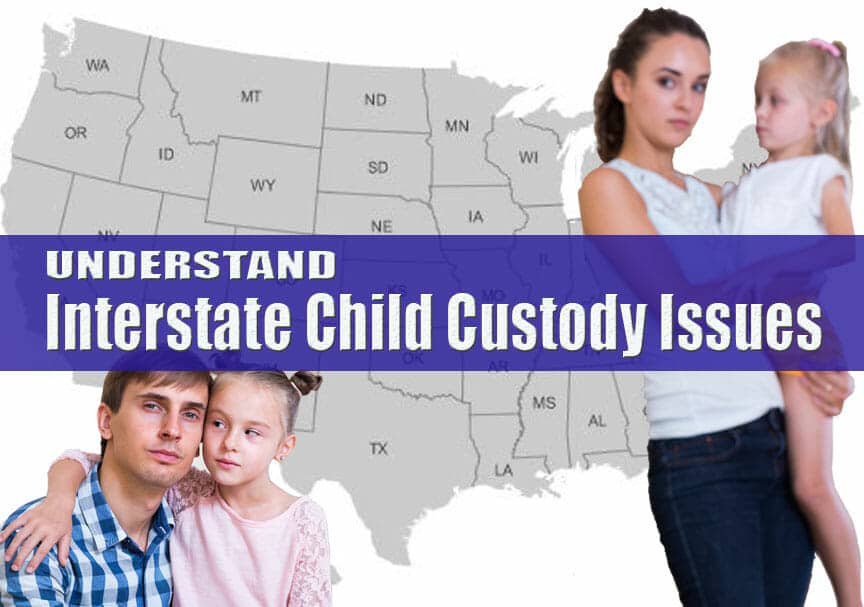Interstate Child Custody Jurisdiction Questions Answered

Due to our high cost of living, raising a family on Long Island in a two-income household is challenging enough, but trying to do it on one income can be a daunting task. This leads to many parents moving out of New York after their divorce in search of a better living situation for their family. Moving into and out of New York State can have consequences on your Child Custody proceeding.
Governing Law for Interstate Child Custody Jurisdiction
Prior to 1997, the easy mobility of families created a complex system in which different states would have conflicting child custody arrangements. For example, a Connecticut court may make an initial determination regarding custody, granting the mother residential custody. Dad would then move out of state to New York and file a separate Child Custody Petition and the New York court would make its own decision. While technically speaking, the New York court would have been required to adhere to the Connecticut decision, sometimes this wouldn’t happen, and confusion would ensue.
To create a more unified system, in 1997 the Uniform Child Custody Jurisdiction and Enforcement Act (UCCJEA) was passed. Since 1997, 49 states (including New York) have adopted this legislation. It is this legislation that determines a state’s ability to hear your Child Custody case.
What is Interstate Child Custody Jurisdiction?
For a court to hear your Child Custody case, or any case for that matter, it must first have jurisdiction over the parties and the subject matter of the case. It is well established in New York that Family Court and Supreme Court have concurrent jurisdiction over certain subject matter, including your Child Custody case. Notwithstanding, the state must also have jurisdiction over the parties so as to render a valid judgment. If the state does not have jurisdiction over the parties (here, both parents and the child(ren)), then any Judgment or Order entered may not be valid. As discussed above, there used to be challenges in determining which state had jurisdiction over a Child Custody case when a family has been very mobile. The UCCJEA set out to solve that problem.
How Does the UCCJEA Work?
According to the UCCJEA, a state has jurisdiction to make a child custody determination only if:
- the state is the home state of the child on the date of commencement; or
- was the home state of the child within 6 months prior to the commencement of the proceeding (this also requires that one parent/guardian remain in the home state).
It is important to note that the UCCJEA defines a child’s “home state” as the state in which a child has lived with a parent or guardian for at least 6 consecutive months immediately before the commencement of the proceeding. If the child is less than six months in age, the home state is that in which the child has lived from birth with either a parent or guardian.
It’s also important to realize that the UCCJEA grants exclusive, continuing jurisdiction to the court that makes a proper custody determination under its rules. This jurisdiction extends until the original court determines that neither the child nor the parent/guardian continue to reside in that state, or the child no longer has a significant connection with the state and substantial evidence relating to the child’s care, protection, training and personal relationships is no longer available in the state. So, if New York is the child’s home state and you bring a proper Child Custody Petition in the New York Courts, any modifications that you seek will need to be done in New York. A court of a different state cannot make or modify a custody determination while another state has exclusive and continuing jurisdiction, absent certain statutory exceptions.
Questions About Child Custody and Visitation on Long Island?
To learn more about what you need to know about Child Custody on Long Island, visit this page on Child Custody or contact us at 631-923-1910 for a complimentary consultation
Need Help With Child Custody on Long Island? Contact Us for a Free Consultation
As you can see, Child Custody cases can get very technical and require a familiarity with different rules and statutes. If you find yourself in the midst of, or contemplating, a Child Custody proceeding, it is important that you seek legal representation to adequately protect your interests. Should you have further questions or wish to seek legal representation, please contact our Long Island Divorce & Family Law firm at 631-923-1910 to set up your free consultation.
GET YOUR FREE CONSULTATION TODAY
Call 631-923-1910 or fill in the form below
Horberger Verbitsky, P.C. partners Robert E. Hornberger, Esq. and Christine M. Verbitsky, Esq.
Get your complimentary consultation and case evaluation with our experienced Suffolk County divorce lawyers or family law attorneys today.
Your attorney will describe the many options available and determine together which is the right solution for you. By the end of this conversation, we’ll all understand how we can best help you to move forward.
No Cost or Obligation
There is no cost or obligation for this initial consultation. It is simply an opportunity for us to get to know each other, answer your questions and learn if Hornberger Verbitsky, P.C. is the right law firm for you. Give us a call at 631-923-1910 or fill in the short form below for your free consultation and case evaluation.
All Fields Are Required